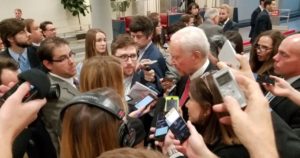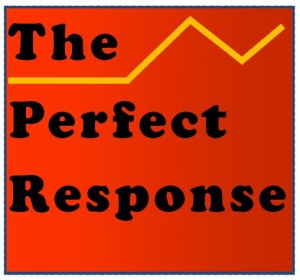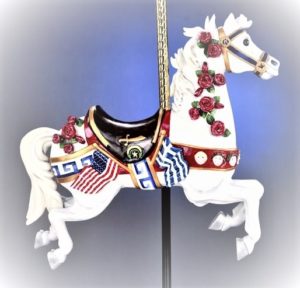The mistaken goal of being seen strays far from what someone elected to public office should want. It says “showhorse” and “phony” at the same time.
The inescapable hothouse of national politics that has consumed many Americans for the last five years may finally be getting more fresh air. The election brought on a dramatic shift in power that has made it possible to witness the refreshing sight of some “workhorses” replacing “showhorses” who mostly just feigned administrative competence.
The equestrian reference is an old canard about politics repeated by practitioners and observers alike. A showhorse is an individual who is primarily a self-promoter. Interest in working with deliberative and administrative processes is limited or non-existent. It’s been said about many senators that you could be run over if you accidently came between a specific member and a group of reporters. In contrast, a workhorse is someone who seeks progress on specific policy or oversight goals, not requiring the limelight to be motivated.
This second breed is less common. Fewer people who offer themselves up to be leaders or legislators at the federal level are interested in the hard work required to build coalitions and find routes to compromise. They do exist. But their very anonymity in our media makes it even harder to notice their hard work. For example, there is a group of seven women in the House of Representatives who are trying to put together a package of immigration reforms. Representative Linda Sanchez describes all of them as “not doing it for the glory or for the credit,” but to repair a broken system. Their names– Lofgren, Roybal-Allard, Velázquez, Chu, Clarke and Bass–are mostly unfamiliar. Members like these are content to broker solutions without using them as springboards to fame.
 We are in a prolonged period where more leaders are attracted to federal electoral offices for the performance chances they offer. Cameras and interviews mean celebrity recognition and a puffed-up sense of self-importance. These people who want to be known as “players” see their chances for power mostly in their ability to build their own “brand” and maybe shape public opinion.
We are in a prolonged period where more leaders are attracted to federal electoral offices for the performance chances they offer. Cameras and interviews mean celebrity recognition and a puffed-up sense of self-importance. These people who want to be known as “players” see their chances for power mostly in their ability to build their own “brand” and maybe shape public opinion.
For Trump, being the President was far more interesting than functioning as a President.
President Donald Trump’s pleasure at playing to the crowd was so obvious that it at times its unintended humor was better than what the comics at SNL could think up. And remember the crowd that had to be gassed and removed so he could walk across the street from the White House to be photographed in front of a church clutching a bible like an Olympic medal? He craved media coverage. The same distorted priority was revealed on January 6 in his unwillingness to call the National Guard to stop his minions from braking into the Capitol. He was reportedly immobilized and delighted by the spectacle of the rioters with flags bearing his name. Eventually it fell to Mike Pence and Nancy Pelosi to summon more protection against the mob.
Consider one more case. Seemingly unaware of how far afield he drifted from the job he sought, North Carolina Representative Madison Cawthorn (R) was quoted recently in Time Magazine noting he has built his office staff just for communications “rather than legislation.” That’s a departure from most congressional offices that have people to research issues and help craft bills that members will promote. But Mr. Cawthorn is apparently using the public’s money to run his own self-marketing agency. Refusing the work of legislating is like going into business to create swimsuits that can’t get wet, or making wedding cakes from plaster. Such an emphasis on appearances strays so far from what someone elected to a deliberative body should want.
Perhaps this is how American leadership will wither and die: at the hands of people more interested in media appearances than in helping constituents desperate for governmental action.
![]()

